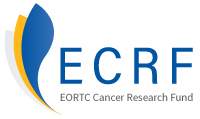Cancer patients own reporting of their quality of life can be important in predicting the outcome of their disease, says EORTC

QoL Scores
Cancer patients have been encouraged to report their quality of life during treatment; this is known as patient-reported outcomes (PROs). In a recent study, EORTC identified 23,122 patients across 13 different cancer types in 44 clinical trials completed PRO assessments. The main tools used in those studies to assess the patients were the EORTC QoL research‘s Quality of Life questionnaire and the Functional Assessment of Cancer Treatment questionnaire. Findings of 44 clinical trials carried out between 2006 and 2018 on patients with cancer that report QoL scores. In 41 of the 44 studies included, or 93%, the researchers found that at least one such outcome, such as physical functioning or pain, was significantly associated with overall survival.
EORTC QoL
Quality of Life assessment is becoming increasingly important in oncology. Governments are starting to collect data not only from cancer clinical trials, but also from patients undergoing standard hospital care. This can not only help health services understand patients’ needs, but also allow for QoL mapping across countries and perhaps even more widely. In demanding better standards for future research in the field of prognostic prediction – being able to tell patients what survival duration they can expect – the researchers hope that patients will be able to better adapt their lives to the impact of the cancer diagnosis on their survival.
“Although this will not alter practice, it will encourage clinicians to take more interest in patients’ QoL scores and to understand their importance. They are vital in making services and care specific for each cancer patient. ‘Targeted treatment’ is much discussed in the context of pharmaceuticals, but QoL scores also allow us to ‘target’ the direct needs and concerns of the patient rather than just relying on tumour size or organ-specific problems,” Dr Bottomley, EORTC head of QoL department concludes.
You can also help support EORTC’s game-changing clinical research to unleash scientific breakthrough and transform cancer patients’ lives. GET INVOLVED, or Make a Contribution Now.







Get Social